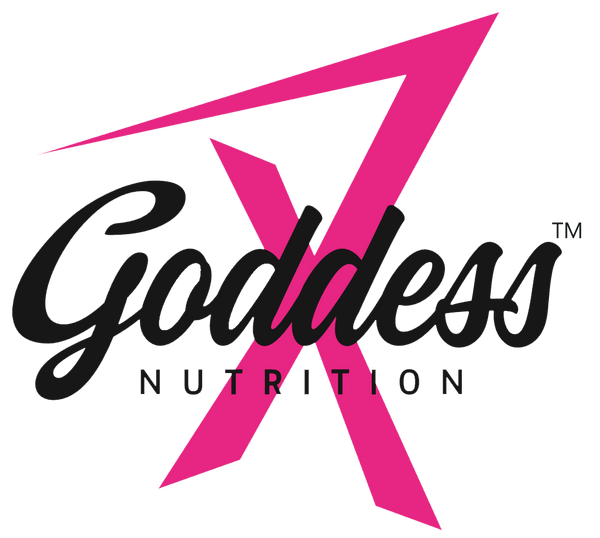Omega-3 fatty acids are essential for women's health, affecting various aspects of the body, including the heart, brain, skin, and hormone regulation. But with so many supplements on the market, how do you choose the best omega-3 for women? This blog will guide you through the types of omega 3s, how to choose a supplement, and how to make the best choice for your needs.
Types of Omega 3s: What’s in Your Supplement?
Not all omega 3s are created equal. There are three main types you’ll find in foods and supplements:
1. Eicosapentaenoic Acid (EPA): Found primarily in oily fish and seafood, EPA is recognised for its anti-inflammatory properties and cardiovascular health benefits.
2. Docosahexaenoic Acid (DHA): Also sourced from fish, DHA is crucial for brain, eye, and skin health, and is especially important during pregnancy and breastfeeding.
3. Alpha-linolenic Acid (ALA): This plant-based omega 3 is found in flaxseed, chia seeds, and walnuts. Your body can convert a small amount of ALA into EPA and DHA, but the process is not very efficient.
If you follow a vegetarian or vegan diet, you’ll likely rely on ALA or algae-based DHA supplements, as most EPA and DHA come from fish.
Why Do Women Need Omega 3s?
There are many omega 3 benefits for women, especially during life stages like pregnancy, menopause, and beyond. They can:
● Help manage symptoms of menopause, such as hot flashes and joint pain
● Support mood, cognitive function, and mental well-being
● Contribute to healthy skin, reducing breakouts and signs of ageing
● Promote heart health by lowering triglycerides and supporting healthy cholesterol levels
Unfortunately, many women in the UK don’t get enough omega 3s from their diet alone, making supplements a smart addition to their wellness routine.
Choosing the Best Omega 3 Supplement For Women: What to Look For
With so many options, here’s what you should consider before buying:
Check the Type and Amount of Omega 3s
● Look for supplements that clearly state the amounts of EPA and DHA per serving. Some products advertise “1000mg fish oil” but contain only a fraction of that as actual EPA and DHA.
● For most women, a daily combined dose of 250-500 mg of EPA and DHA is a good starting point, unless advised otherwise by your doctor.
Purity
● Select brands that have been tested for purity and potency. This ensures your supplement is free from heavy metals and contaminants, which is especially important with fish oils.
Form of Omega 3
● Omega 3s come in different forms: free fatty acids (FFA), triglycerides (TG), reformed triglycerides (rTG), phospholipids (PLs), and ethyl esters (EE). FFA, TG, rTG, and PLs are better absorbed than EE.
Freshness
● Always check the expiry date, and if your supplement smells fishy or off, it may have spoiled. Some products add vitamin E as an antioxidant to keep the oil fresh.
Sustainability and Source
● Opt for supplements made from small, wild-caught fish, such as anchovies or sardines, which are lower in mercury and more sustainable.
● If you are vegan or vegetarian, consider algae-based DHA supplements, which provide a plant-based alternative without compromising on quality.
Suitability for Women
Some brands create women’s omega 3 supplements, sometimes combining them with other nutrients like vitamin D or evening primrose oil.
Final Tips Before You Buy
● Always consult your GP before starting any new supplement, especially if you are pregnant, breastfeeding, or taking medications like blood thinners.
● Remember, supplements should complement a healthy diet—try to incorporate oily fish, flaxseed, or chia seeds into your meals whenever possible.
● Read reviews and check for third-party certifications to ensure you are getting a high-quality product.
Experience the Power of Omega 3 for Women from Goddess Nutrition
Goddess Nutrition offers the best omega 3 fish oil for women. Our Essential Omegas provide a concentrated dose of EPA and DHA, vital fatty acids that support heart health, brain function, eye health, and reduce inflammation.
Made in the UK, these supplements are gluten-free and non-GMO, ensuring high quality and purity. Taking one capsule daily can also help ease PMS symptoms and support fertility and bone health. The softgels are easy to swallow and formulated to promote overall wellness. Enhance your health with Goddess Nutrition’s trusted Omega 3 supplement today.
Frequently Asked Questions
Are omega3 supplements good for women?
Omega 3 supplements are beneficial for women, offering benefits such as easing menstrual pain, supporting heart health, reducing inflammation, and protecting against osteoporosis and rheumatoid arthritis. Since the body cannot make omega 3s, supplements help women meet their nutritional needs and support overall well-being.
Do omega 3 supplements improve sleep quality specifically for women?
Omega 3 supplements, especially those rich in DHA, show promise for improving sleep quality in women by supporting melatonin production and healthy sleep patterns. However, results can vary by age and hormonal status, with the most potent effects typically seen outside menopause. More research is needed for definitive, sex-specific recommendations.
Who should not take omega-3?
Omega 3 supplements should be avoided or used with caution by people with fish or seafood allergies, bleeding disorders, or those taking blood-thinning medications. Individuals with liver disease, certain arrhythmias, diabetes (at high doses), weakened immune systems, or implanted heart devices should consult a doctor before use.
Is omega 3 good for skin?
Omega 3 is beneficial for the skin, offering multiple benefits such as regulating oil production, improving hydration, and reducing breakouts and signs of ageing. It can help soften rough, dry skin, soothe irritation and dermatitis, and may protect against sun damage, while also supporting faster wound healing.
Can omega 3 increase weight?
Omega 3 supplements do not typically cause weight gain when taken at recommended doses, as they contain very few calories. Omega 3s may support weight management and help reduce fat in some cases. However, consuming excessive amounts could potentially contribute to weight gain or other health issues.

